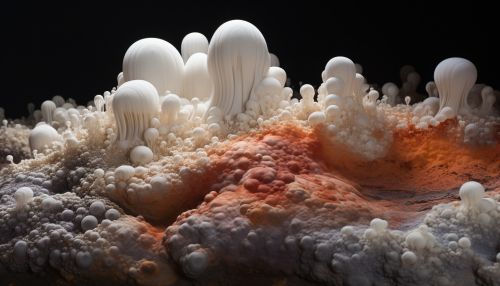The Chemistry of Ocean Methane Hydrates and Climate Implications
Introduction
Ocean methane hydrates are a type of clathrate compound found in deep-sea sediments. These are essentially methane molecules trapped within a lattice of water molecules, forming a solid similar to ice. The chemistry of these hydrates and their potential impact on the climate are areas of active research in the fields of geochemistry and climatology.


Formation of Methane Hydrates
Methane hydrates form under specific conditions of high pressure and low temperature, typically found in deep-sea sediments and permafrost regions. The methane is primarily produced by anaerobic decomposition of organic matter by microorganisms. This methane then combines with water to form hydrates under the right conditions.
Structure and Properties
Methane hydrates belong to a class of compounds known as clathrates or cage compounds. In these structures, the methane molecules are trapped within a cage-like lattice of water molecules. This structure is stabilized by hydrogen bonding among the water molecules. Despite the solid appearance of methane hydrates, the methane molecules within the cages are not chemically bonded to the water molecules and can move freely within their cages.
Stability and Decomposition
The stability of methane hydrates is highly dependent on the temperature and pressure of the surrounding environment. When these conditions change, the hydrates can decompose, releasing the trapped methane into the surrounding environment. This decomposition can be triggered by changes in sea level, ocean temperature, or geological activity.
Methane Hydrates and Climate Change
Methane is a potent greenhouse gas, with a warming potential over 25 times greater than that of carbon dioxide over a 100-year period. Therefore, the release of methane from hydrates into the atmosphere could significantly contribute to global warming. This has led to concerns about the potential for a positive feedback loop, where warming temperatures lead to hydrate decomposition, which in turn leads to further warming.
Potential Energy Source
Methane hydrates represent a significant potential source of natural gas. However, the extraction of methane from hydrates is technically challenging and carries risks, including the potential for uncontrolled methane release.
